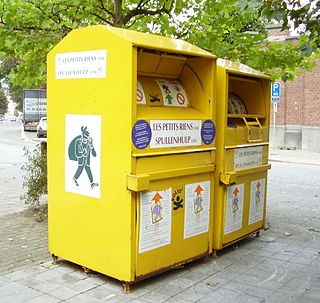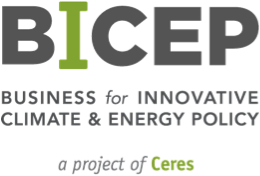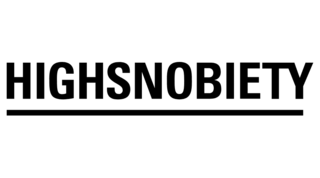
Fashion is a term used interchangeably to describe the creation of clothing, footwear, accessories, cosmetics, and jewellery of different cultural aesthetics and their mix and match into outfits that depict distinctive ways of dressing as signifiers of social status, self-expression, and group belonging. As a multifaceted term, fashion describes an industry, styles, aesthetics, and trends.
Fashion law deals with legal issues that impact the fashion industry. Fundamental issues in fashion law include intellectual property, business, and finance, with subcategories ranging from employment and labor law to real estate, international trade, and government regulation. Fashion law also includes related areas such as textile production, modelling, media, the cosmetics and perfume industries, questions of safety and sustainability, dress codes and religious apparel, consumer culture, privacy and wearable tech, and civil rights. Clothing laws varies by country.
Nine West Holdings is an American designer, marketer and wholesaler of branded clothing, shoes and accessories. In 2019, the company restructured under the new name Premier Brands Group Holdings Llc.
Patagonia, Inc. is an American retailer of outdoor recreation clothing. It was founded by Yvon Chouinard in 1973 and is based in Ventura, California. Patagonia operates stores in more than 10 countries globally, as well as factories in 16 countries.

Fast fashion is the business model of replicating recent catwalk trends and high-fashion designs, mass-producing them at a low cost, and bringing them to retail quickly while demand is at its highest. The term fast fashion is also used generically to describe the products of this business model. Retailers who employ the fast fashion strategy include Primark, H&M, Shein, and Zara, all of which have become large multinationals by driving high turnover of inexpensive seasonal and trendy clothing that appeals to fashion-conscious consumers.

Textile recycling is the process of recovering fiber, yarn, or fabric and reprocessing the material into new, useful products. Textile waste is split into pre-consumer and post-consumer waste and is sorted into five different categories derived from a pyramid model. Textiles can be either reused or mechanically/chemically recycled.

Sustainable fashion is a term describing efforts within the fashion industry to reduce its environmental impacts, protect workers producing garments, and uphold animal welfare. Sustainability in fashion encompasses a wide range of factors, including "cutting CO2 emissions, addressing overproduction, reducing pollution and waste, supporting biodiversity, and ensuring that garment workers are paid a fair wage and have safe working conditions".

Business for Innovative Climate and Energy Policy (BICEP) is a coalition of businesses coordinated by Ceres whose primary goal is to call on the U.S. government to pass broad, bi-partisan energy and climate legislation. BICEP currently has 48 members.

Micro-sustainability is the portion of sustainability centered around small scale environmental measures that ultimately affect the environment through a larger cumulative impact. Micro-sustainability centers on individual efforts, behavior modification, education and creating attitudinal changes, which result in an environmentally conscious individual. Micro-sustainability encourages sustainable changes through "change agents"—individuals who foster positive environmental action locally and inside their sphere of influence. Examples of micro-sustainability include recycling, power saving by turning off unused lights, programming thermostats for efficient use of energy, reducing water usage, changing commuting habits to use less fossil fuels or modifying buying habits to reduce consumption and waste. The emphasis of micro-sustainability is on an individual's actions, rather than organizational or institutional practices at the systemic level. These small local level actions have immediate community benefits if undertaken on a widespread scale and if imitated, they can have a cumulative broad impact.
Zero-waste fashion refers to items of clothing that generate little or no textile waste in their production. It can be considered to be a part of the broader sustainable fashion movement. Zero-waste fashion can be divided into two general approaches: pre-consumer zero-waste fashion, which eliminates waste during manufacture, and post-consumer zero-waste fashion, which generates clothing from garments such as second-hand clothing. Historically, zero-waste models have been utilised in folk clothing, including the kimono, sari, and chiton, among others.

Cotton recycling is the process of converting cotton fabric into fibers that can be reused into other textile products.
The Higg Index is an apparel and footwear industry self-assessment standard to rate environmental and social sustainability throughout the supply chain. The Sustainable Apparel Coalition (SAC) launched it in 2012 and owns and develops the suite of tools. The nonprofit consists of more than 300 fashion brands, retailers, manufacturers, academic institutions, affiliates, NGOs and governments. While initially formed to create standardized sustainability metrics, the SAC has since sharpened its focus to driving pre-competitive, collective action across three foundational pillars: "Combat Climate Change", "Decent Work for All", and a "Nature-Positive Future". This is outlined in its "Evolution for Impact" strategic plan, revised in 2023.
Clothing industry or garment industry summarizes the types of trade and industry along the production and value chain of clothing and garments, starting with the textile industry, embellishment using embroidery, via the fashion industry to apparel retailers up to trade with second-hand clothes and textile recycling. The producing sectors build upon a wealth of clothing technology some of which, like the loom, the cotton gin, and the sewing machine heralded industrialization not only of the previous textile manufacturing practices. Clothing industries are also known as allied industries, fashion industries, garment industries, or soft goods industries.

Digital Fashion is the visual representation of clothing built using computer technologies and 3D software. This industry is on the rise due to ethical awareness and uses of digital fashion technology such as artificial intelligence to create products with complex social and technical software.

Fashion Revolution is a not-for-profit global movement represented by The Fashion Revolution Foundation and Fashion Revolution CIC with teams in over 100 countries around the world. Fashion Revolution campaigns for reform of the fashion industry with a focus on the need for greater transparency in the fashion supply chain. Starting in 2013, Fashion Revolution has designated the anniversary of the Rana Plaza disaster in Bangladesh as Fashion Revolution Day and holds events each year. Between 2014 and 2020, millions of people around the world called on brands to answer the question Who Made My Clothes? The hashtag #WhoMadeMyClothes became the no.1 global trend on Twitter. They have faced criticisms specifically about the Transparency Index.

Highsnobiety is a global fashion and lifestyle media brand founded in 2005 by David Fischer. It was bought by German e-commerce giant Zalando in 2022. Highsnobiety is headquartered in Berlin and has offices in Amsterdam, London, Milan, New York, Los Angeles and Sydney.

Slow fashion is an aspect of sustainable fashion and a concept describing the opposite to fast fashion, part of the "slow movement" advocating for clothing and apparel manufacturing in respect to people, environment and animals. As such, contrary to the industrial practices of fast fashion conglomerates, slow fashion involves local artisans and the use of eco-friendly materials, with the goal of preserving crafts and the environment which, ultimately, provides value to all, slow fashion brands, consumers and retailers.

The fashion industry, particularly manufacture and use of apparel and footwear, is a significant driver of greenhouse gas emissions and plastic pollution. The rapid growth of fast fashion has led to around 80 billion items of clothing being consumed annually, with about 85% of clothes consumed in United States being sent to landfill.
Globalization of supply chains and pressure to lower production costs have negatively impacted environments and communities around the world, especially in developing nations where production of high demand goods is increasingly taking place. Since the 1990s, awareness of these negative impacts has grown, leading stakeholders to push companies to take responsibility and actively work to improve the sustainability of their supply chains. It has come to be understood that a company is only as sustainable as the start of its supply chain, bringing about the need for sustainable sourcing. Sustainable sourcing refers to the inclusion of social, environmental, and economic criteria in the sourcing process.
Recover Textile Systems, mainly known as Recover™, is a materials science company and producer of mechanically recycled cotton fiber and recycled cotton fiber blends, created in 2020 with its headquarters in Banyeres de Mariola, Spain.











